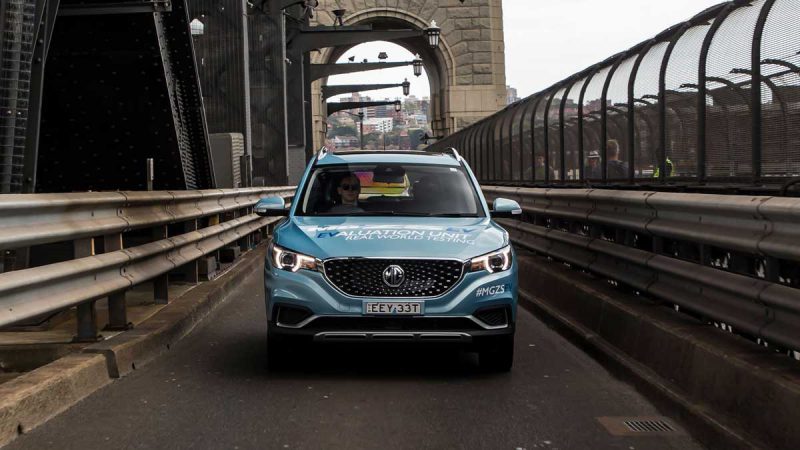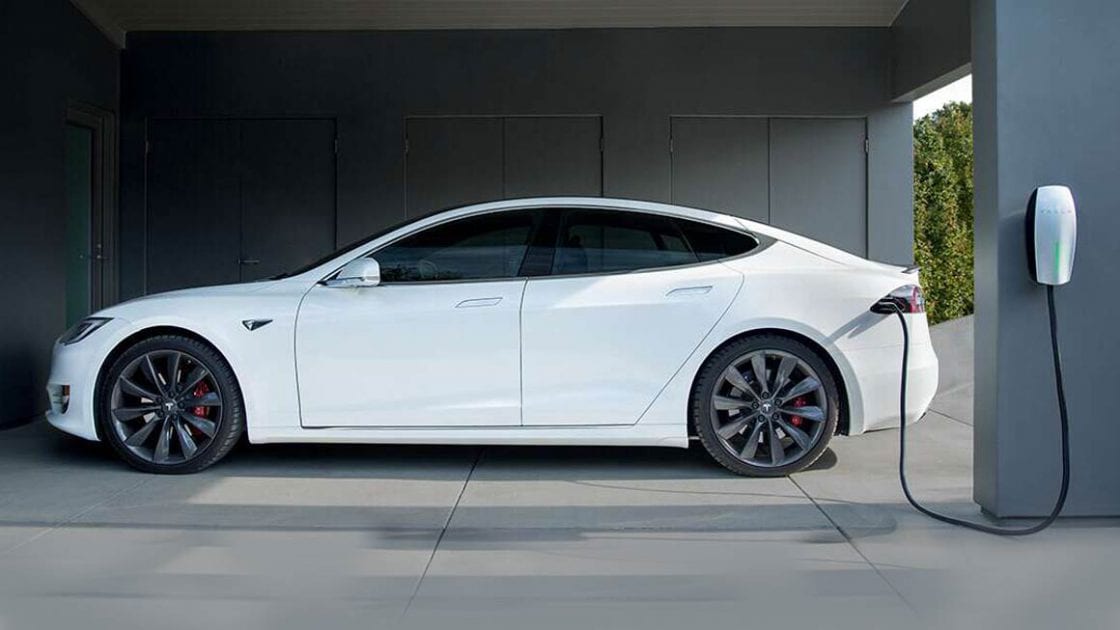Electric cars cost up to $10,000 less to run than they did a decade ago, with the MG ZS EV – an electric compact SUV – coming in as the cheapest electric vehicle to own according to new reports from the Victorian and Queensland motorists associations.
It’s good news for drivers, many of whom indicate that price is the main barrier holding them back from stepping away from fluctuating prices at the petrol browser.
And with more affordable EV models slated for the Australian market – including electric hatchbacks such as the budget BYD EA1 – and new state incentives helping to reduce upfront purchase costs, there has never been a better time to buy an electric vehicle than now.
So which EVs are the cheapest to own on the market today?
New vehicle cost of ownership reports from the RACQ and RACV both show the MG ZS EV is hands down the cheapest to own – largely because when the Chinese-owned brand introduced it, it was at the lowest price Australia has ever seen for an EV.
At $43,990 drive away, the practical and family-friendly ZS EV is an all-electric version of the MG ZS. It offers around 230km real-world range and has proven the most popular electric vehicle on the local market in 2021 aside from the Tesla Model 3.
“The MG ZS-E is the cheapest EV on the market in Queensland and will set a buyer back $1086pm to own and run,” RACQ spokesperson Lauren Ritchie said regarding the RACQ’s new report.
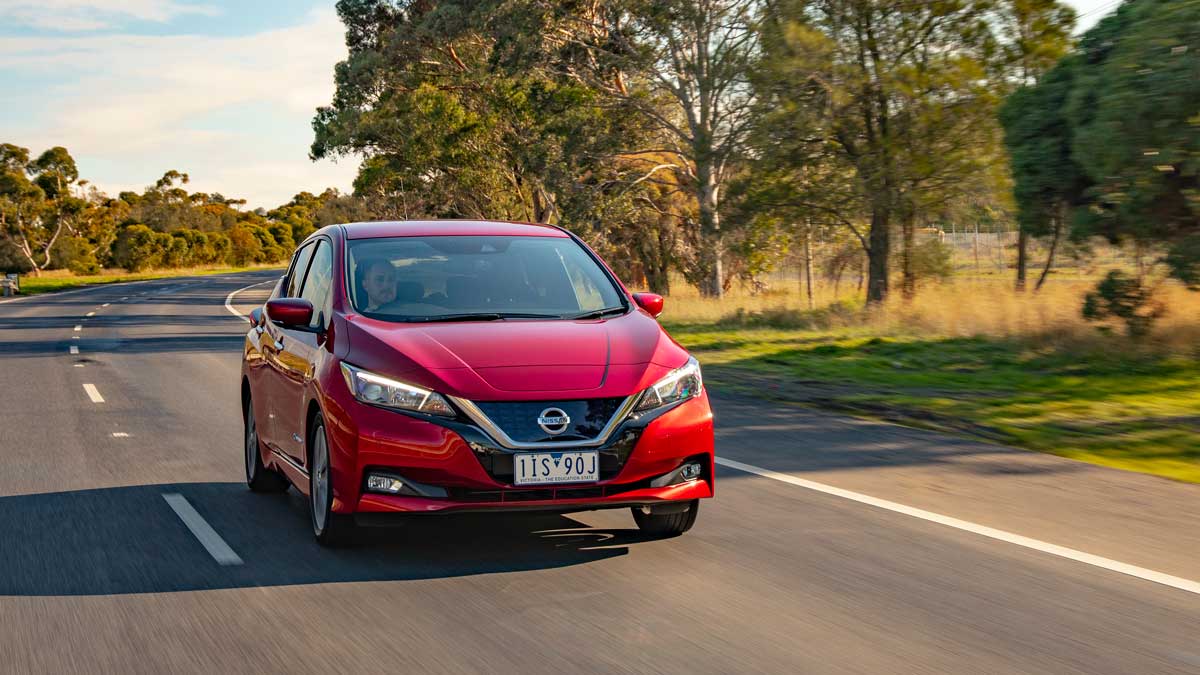
“Other EV models available include the Hyundai Ioniq Elite EV at $1207pm, the Mitsubishi Outlander PHEV at $1263pm and the Nissan Leaf $1306pm.
Each report looked at six non-premium electric models in total, including both battery-electric and plug-in hybrid vehicles (PHEVs).
Alongside the MG ZS EV, they looked at the Hyundai Ioniq EV, the Ioniq PHEV, the Hyundai Kona, the Nissan Leaf and the Mitsubishi Outlander PHEV.
The Tesla Model 3 – considered a premium vehicle – was not included in the reports although it accounts for seven out of 10 electric vehicles sold in Australia (8,688 were sold in the first half of 2021 according to the Electric Vehicle Council, with 2,732 being non-Tesla vehicles – and no Model S and X delivered in 2021 to date).
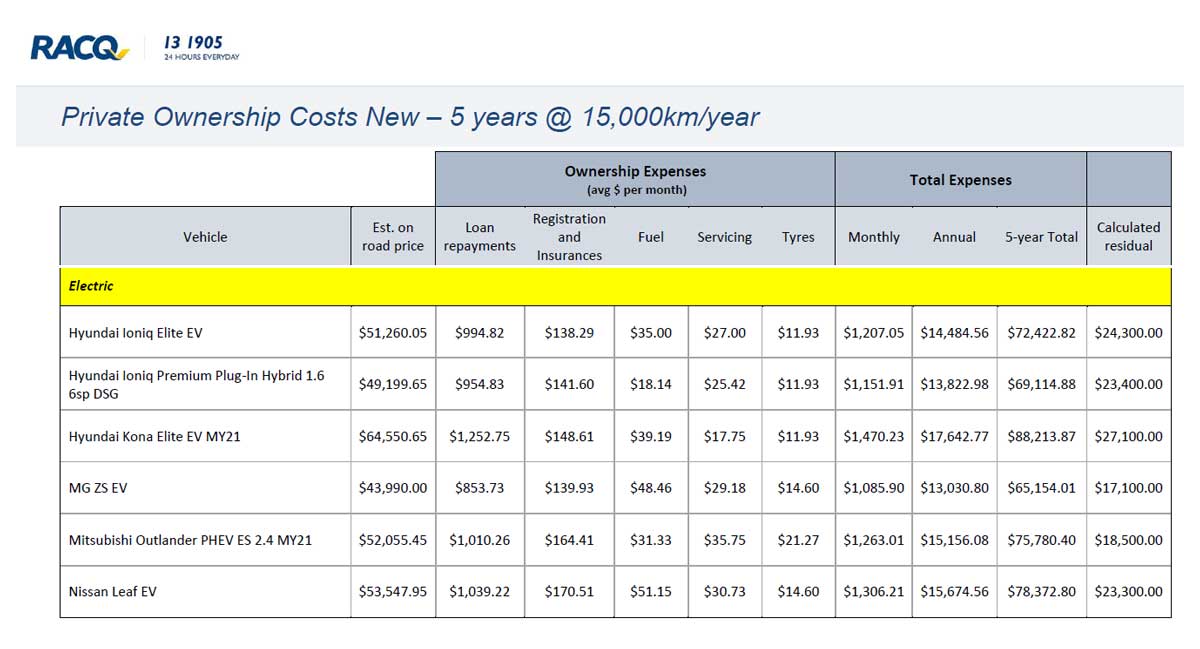
Based on domestic electricity tariffs of 25 cents per kilowatt hour, a spokesperson for the RACV said that official power consumption as provided by the manufacturer was used for battery electric vehicles.
In the case of PHEVs, which combine electric and petrol engine technologies, the domestic electricity tariff and appropriate petrol costs and official fuel consumption were used. It is understood that the cost of the controversial Victorian EV road user tax – the only punitive cost for EV owners in the world – was not included in the calculations.
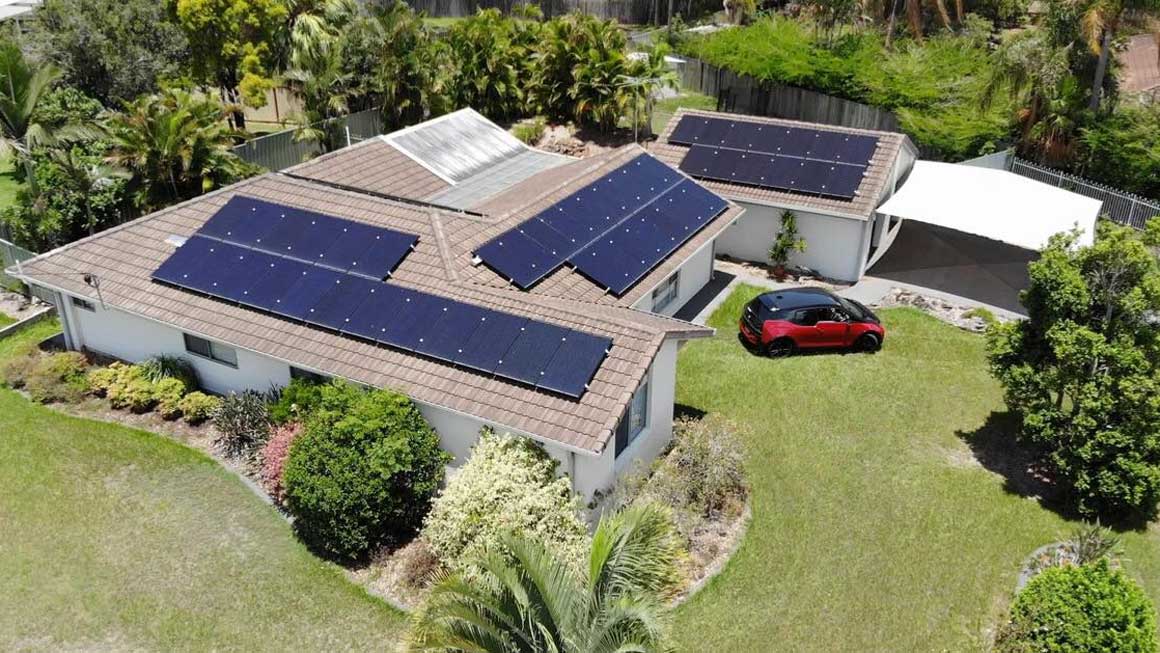
The RACV says that based on this, “Electric vehicles and plug-in hybrid electric vehicles require an average monthly spend of $1280.83, which pleasingly is about $100 less than last year’s survey.”
And it’s worth remembering that if charged off solar at home, or at free public chargers, the cost of ownership is even lower.
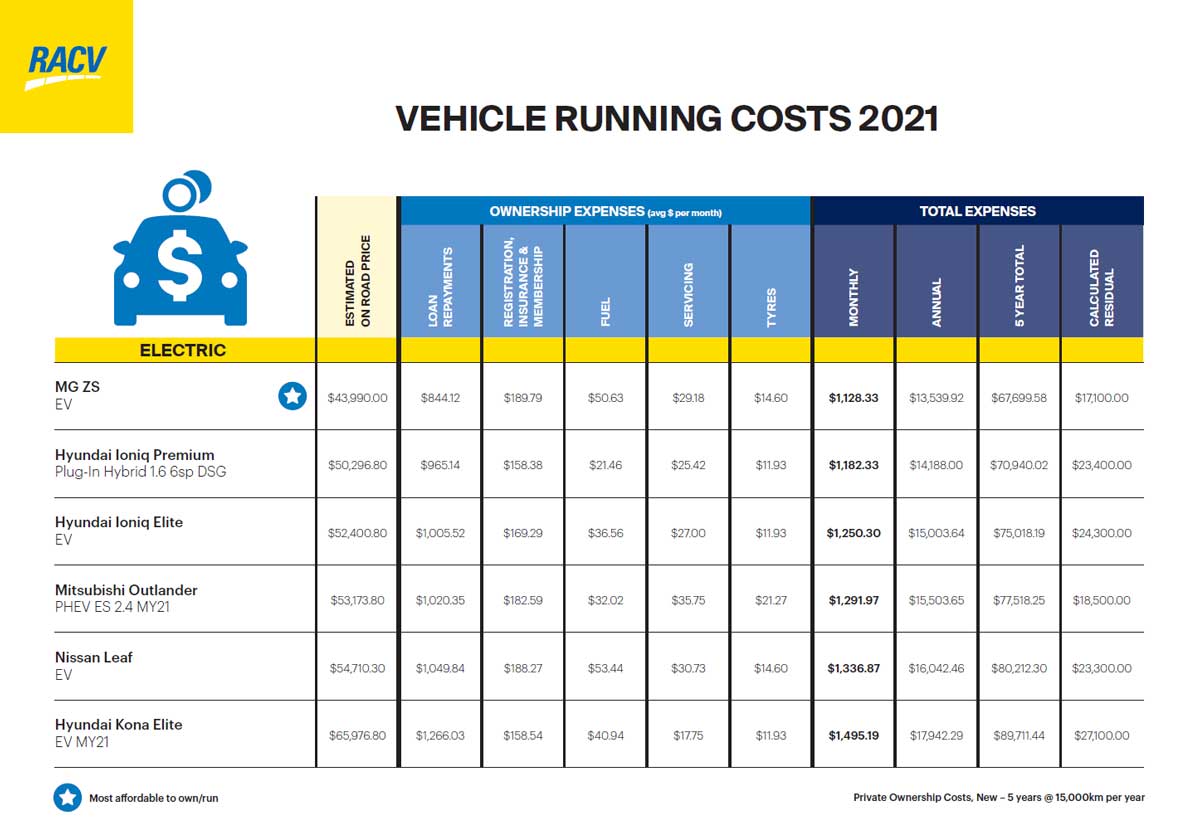
According to the RACV report, electric vehicles – despite their typically higher purchase price compared to equivalent internal combustion engine (ICE) vehicles – were only beaten by small cars and compact SUVs on running costs.
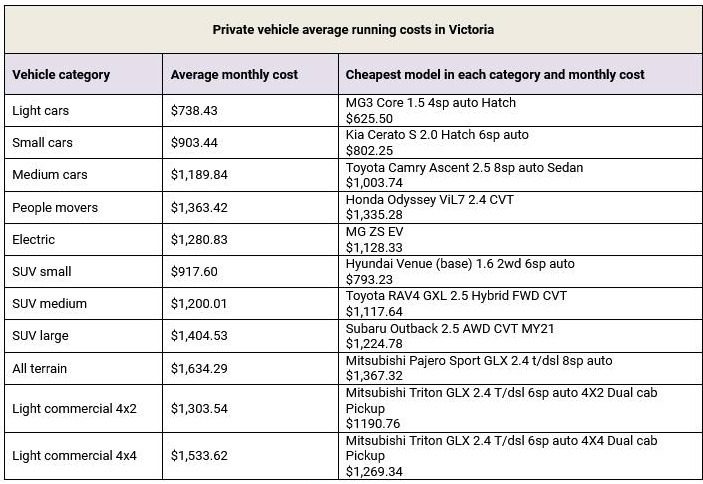
And the Tesla Model 3? As The Driven has noted previously, it is entirely possible that it already costs less to own than a Toyota Camry hybrid but this is highly dependent on resale values.
But given it is the most popular EV in Australia as well as worldwide, it would be remiss not to include it in this article.
If we alter our calculations from that article to fit in with the RACV and RACQ reports, the calculations look like this (estimating loan costs based on the similarly priced Hyundai Kona, using the premium RACV membership costs of $23/mth, and based on 60,000km on Michelin Sport 4S tyres):
| Est. on road price | Rego, Insurance and Membership | Fuel/Power | Servicing | Tyres | Subtotal 5yr | Cost to own/mth | |
| Tesla Model 3 |
$64,648 | $158 | $47 | $25 | $23 | $79,751 | $1,330 |

Bridie Schmidt is associate editor for The Driven, sister site of Renew Economy. She has been writing about electric vehicles since 2018, and has a keen interest in the role that zero-emissions transport has to play in sustainability. She has participated in podcasts such as Download This Show with Marc Fennell and Shirtloads of Science with Karl Kruszelnicki and is co-organiser of the Northern Rivers Electric Vehicle Forum. Bridie also owns a Tesla Model Y and has it available for hire on evee.com.au.

